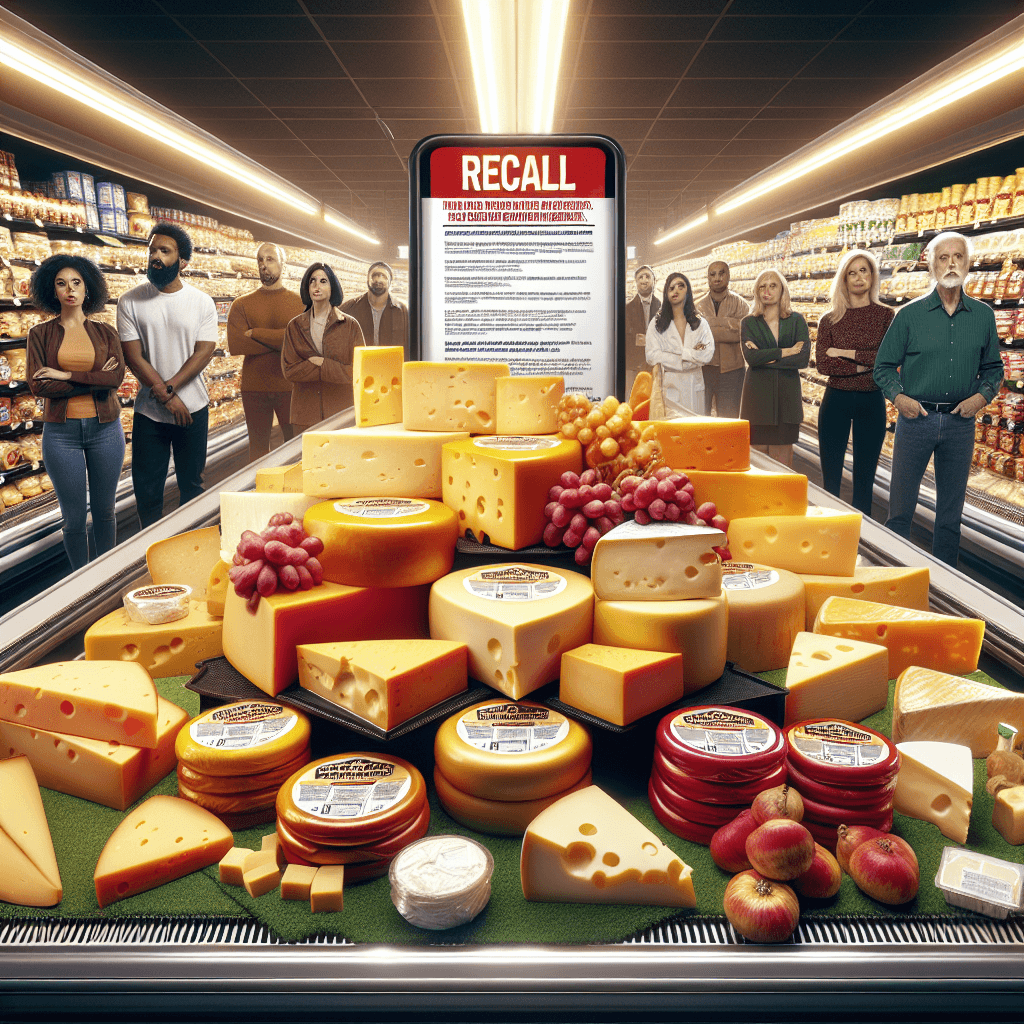Recall Issued for Cheese Products Sold in Yadkinville, Hamptonville: What Consumers Need to Know
Published: June 2024 | By: Elkin Tribune News Team
Overview of the Cheese Recall Affecting Yadkinville and Hamptonville
In June 2024, a significant recall was issued for cheese products distributed and sold in Yadkinville and Hamptonville, North Carolina. According to a detailed report by Elkin Tribune, the recall was prompted by potential contamination risks that could pose serious health hazards, especially to individuals with food sensitivities or specific dietary preferences.
This article provides a comprehensive overview of the recall, including affected products, health risks, and actionable steps for consumers—especially those with allergies, intolerances, or dietary restrictions. We also discuss how modern food safety apps like Food Scan Genius and Yuka can help you make safer choices.
Details of the Cheese Product Recall
The recall, as reported by the Elkin Tribune, involves multiple cheese products distributed to local grocery stores, specialty shops, and food service providers in Yadkinville and Hamptonville. The recall was initiated after routine testing detected the possible presence of harmful bacteria—including Listeria monocytogenes and Salmonella—which can cause severe illness, especially in vulnerable populations.
- Brands affected: Multiple regional and private-label brands
- Types of cheese: Primarily soft cheeses, including queso fresco, brie, and feta
- Distribution dates: Products sold between April and June 2024
- Retail locations: Yadkinville, Hamptonville, and surrounding areas
Consumers are urged to check their refrigerators and discard any cheese products matching the recall description. For a full list of affected products and lot numbers, visit the official recall notice.
Health Risks Associated with Cheese Recalls
Food recalls, especially those involving dairy products, can pose serious health risks. The bacteria identified in this recall—Listeria monocytogenes and Salmonella—are particularly dangerous for:
- Pregnant women
- Young children
- Seniors
- Individuals with weakened immune systems
- People with food allergies or intolerances
Listeria can cause symptoms such as fever, muscle aches, nausea, and diarrhea. In severe cases, it can lead to miscarriage, stillbirth, or life-threatening infections. Salmonella infection typically results in gastrointestinal distress, fever, and abdominal cramps, and can be especially severe in at-risk populations.
According to a 2023 CDC report, cheese recalls due to bacterial contamination have increased by 15% in the last year, underscoring the importance of vigilance for both consumers and retailers.
Why This Recall Matters for People with Food Sensitivities and Dietary Preferences
Individuals with food sensitivities, allergies, or specific dietary preferences face heightened risks during food recalls. For example, those with lactose intolerance or milk allergies may already be cautious, but contamination can introduce unexpected allergens or pathogens.
Recent research (2023, Journal of Food Protection) highlights that cross-contamination during cheese production is a leading cause of allergen exposure, even in products labeled as “lactose-free” or “vegan.” This means that if you rely on specialty or alternative cheese products, you should be especially vigilant during recalls.
Additionally, people following plant-based, paleo, or other specialized diets often seek out artisanal or small-batch cheeses, which may not have the same rigorous testing as mass-produced products. This makes it crucial to stay informed about recalls and safety alerts.
How to Identify Recalled Cheese Products
To protect yourself and your family, follow these steps to identify and safely handle recalled cheese products:
- Check Product Labels: Compare the brand, type, and lot number of your cheese with the official recall list.
- Monitor Symptoms: If you or a family member experience symptoms of foodborne illness after consuming cheese, seek medical attention immediately.
- Contact Retailers: Many stores have dedicated hotlines or customer service desks to answer questions about recalled products.
- Dispose of Products Safely: Do not consume recalled cheese. Double-bag and discard it in a sealed trash container to prevent accidental exposure.
Leveraging Food Safety Apps: Food Scan Genius and Yuka
In today’s digital age, food safety apps like Food Scan Genius and Yuka can be invaluable tools for consumers—especially those with dietary restrictions or allergies.
- Food Scan Genius: This app allows users to scan barcodes and instantly receive alerts about recalls, ingredient changes, and allergen risks. Its database is updated daily, making it a reliable source for real-time food safety information.
- Yuka: Popular among health-conscious shoppers, Yuka rates food products based on nutritional value, additives, and potential allergens. It also notifies users about recalls and provides safer alternatives.
How these apps help:
- Instant recall notifications for scanned products
- Personalized alerts based on your dietary preferences and sensitivities
- Safer shopping with recommendations for alternative products
Tip: If you have recently purchased cheese in Yadkinville or Hamptonville, use these apps to scan your products and verify their safety.
Steps to Take If You Have Purchased Recalled Cheese
If you discover that you have purchased cheese products affected by the recall, follow these steps to ensure your safety:
- Do Not Consume: Immediately stop using the product.
- Dispose Safely: Place the cheese in a sealed bag and discard it in the trash.
- Clean Surfaces: Thoroughly clean any surfaces, containers, or utensils that may have come into contact with the recalled cheese.
- Monitor Health: Watch for symptoms such as nausea, vomiting, fever, or diarrhea. Seek medical attention if symptoms develop.
- Contact the Store: Many retailers offer refunds or store credit for recalled products. Bring your receipt or proof of purchase if possible.
How to Stay Informed About Future Food Recalls
Staying informed is essential for protecting your health and that of your family. Here are some effective ways to keep up-to-date with food recalls:





